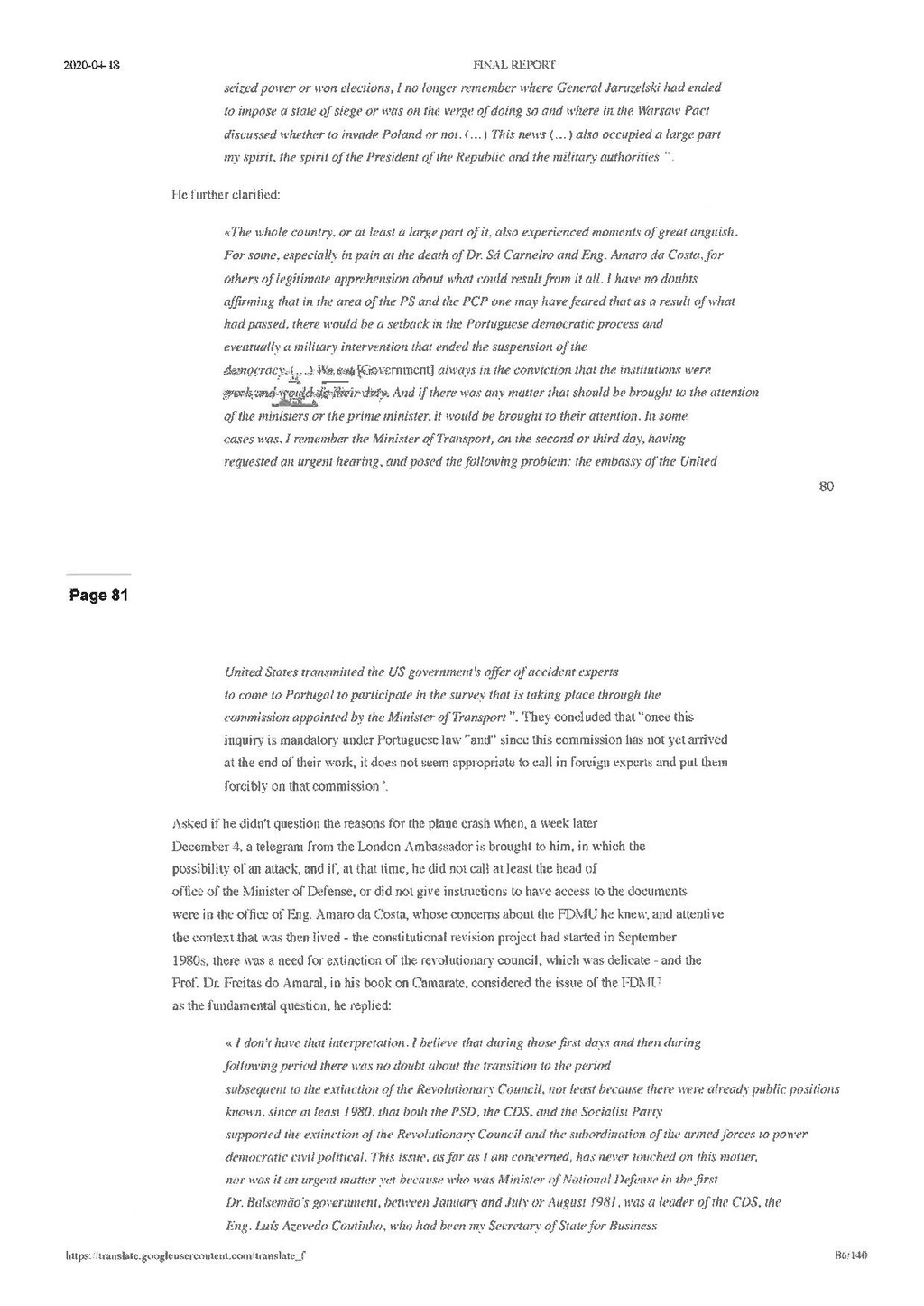seized power or won elections, I no longer remember where General Jaruzelski had ended to impose a state of siege or was on the verge of doing so and where in the Warsaw Pact discussed whether to invade Poland or not. (...) This new's (...) also occupied a large part my spirit, the spirit of the President of the Republic and the military authorities”.
He further clarified:
«The whole country, or at least a large part of it, also experienced moments of great anguish. For some, especially in pain at the death of Dr. Sá Carneiro and Eng. Amaro da Costa, for others of legitimate apprehension about what could result from it all. I have no doubts affirming that in the area of the PS and the PCP one may have feared that as a result of whar had passed, there would be a setback in the Portuguese democratic process and eventually a military intervention that ended the suspension of the democracy. Water Gipuernicnt] always in the conviction that the institutions were pronto indeudda seir day. And if there was any matter that should be brought to the attention of the ministers or the prime minister, it would be brought to their attention. In some cases was. I remember the Minister of Transport, on the second or third day, having requested an urgent hearing, and posed the following problem: the embassy of the United
80
81
United States transmitted the US government's offer of accident experts to come to Portugal to participate in the survey that is taking place through the commission appointed by the Minister of Transport". They concluded that “once this inquiry is mandatory under Portuguesc law "and“ since this commission has not yet arrived at the end of their work, it does not seem appropriate to call in foreign experts and put them forcibly on that commission:
Asked if he didn't question the reasons for the plane crash when, a week later December 4, a telegram from the London Ambassador is brought to him, in which the possibility of an attack, and if, at that time, he did not call at least the head of office of the Minister of Defense, or did not give instructions to have access to the documents were in the office of Eng. Amaro da Costa, whose concems about the FDMU he knew, and attentive the context that was then lived - the constitutional revision project had started in September 1980s, there was a need for extinction of the revolutionary council, which was delicate - and the Prof. Dr. Freitas do Amaral, in his book on Camarate, considered the issue of the FDAU as the fundamental question, he replied:
« I don't have that interpretation. I believe that during those first days and then during following period there was no doubt about the transition to the period subsequeni to the extinction of the Revolutionary Council, not least because there were atready public positions known, since at least 1980. Ihar both the PSD, the CDS, and the Socialist Pariy supported the extinction of the Revolutionary Council and the subordination of the armed forces to power democratic civil political. This issue, as far as I am concerned, has never touched on this matter, nor was it an urgent matter ver because who was Minister of National Defense in the first Dr. Balsemão's government, benveen January and July or August 1981, vas a leader of the CDS, the Eng. Luís Azevedo Coutinho, who had been my Secretary of State for Business
